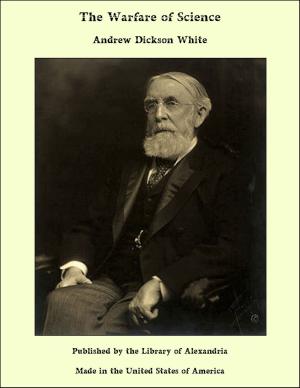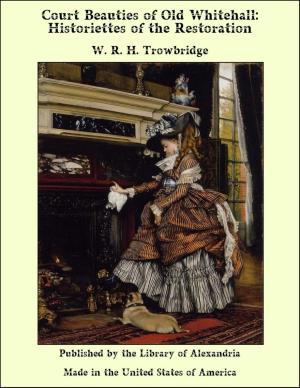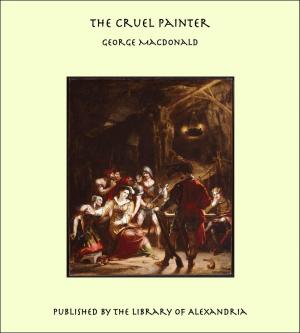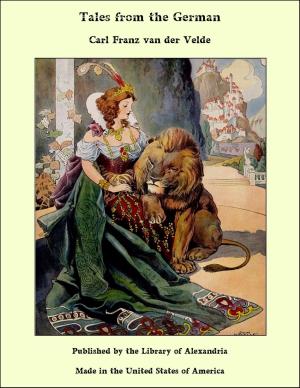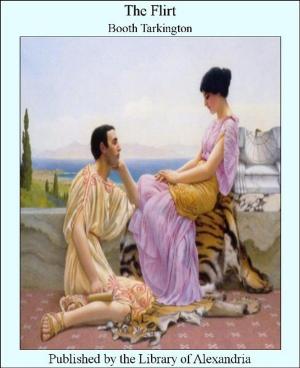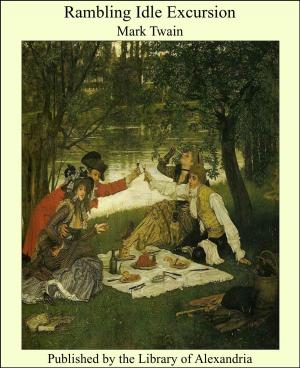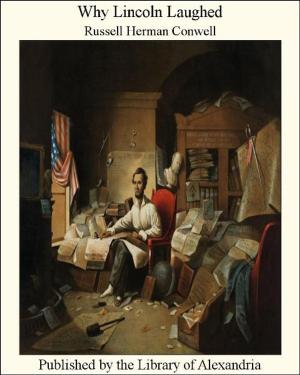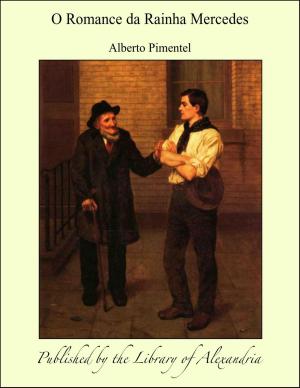| Author: | Joseph Crosby Lincoln | ISBN: | 9781465538383 |
| Publisher: | Library of Alexandria | Publication: | March 8, 2015 |
| Imprint: | Language: | English |
| Author: | Joseph Crosby Lincoln |
| ISBN: | 9781465538383 |
| Publisher: | Library of Alexandria |
| Publication: | March 8, 2015 |
| Imprint: | |
| Language: | English |
Mr. Horatio Pulcifer was on his way home. It was half-past five of a foggy, gray afternoon in early October; it had rained the previous day and a part of the day before that and it looked extremely likely to rain again at any moment. The road between Wellmouth Centre, the village in which Mr. Pulcifer had been spending the afternoon, and East Wellmouth, the community which he honored with his residence, was wet and sloppy; there were little puddles in the hollows of the macadam and the ruts and depressions in the sand on either side were miniature lakes. The groves of pitch pines and the bare, brown fields and knolls dimly seen through the fog looked moist and forsaken and dismal. There were no houses in sight; along the East Wellmouth road there are few dwellings, for no one but a misanthrope or a hermit would select that particular section as a place in which to live. Night was coming on and, to accent the loneliness, from somewhere in the dusky dimness a great foghorn groaned at intervals. It was a sad and deserted outlook, that from the seat of Mr. Pulcifer's "flivver" as it bounced and squeaked and rattled and splashed its way along. But Mr. Pulcifer himself was not sad, at least his appearance certainly was not. Swinging jauntily, if a trifle ponderously, with the roll of the little car, his clutch upon the steering wheel expressed serene confidence and his manner self-satisfaction quite as serene. His plaid cap was tilted carelessly down toward his right ear, the tilt being balanced by the upward cock of his cigar toward his left ear. The light-colored topcoat with the soiled collar was open sufficiently at the throat to show its wearer's chins and a tasty section of tie and cameo scarf-pin below them. And from the corner of Mr. Pulcifer's mouth opposite that occupied by the cigar came the words and some of the tune of a song which had been the hit of a "Follies" show two seasons before. No, there was nothing dismal or gloomy in Mr. Horatio Pulcifer's appearance as he piloted his automobile toward home at the close of that October afternoon. And his outward seeming did not belie his feelings. He had spent a pleasant day. At South Wellmouth, his first port of call, he had strengthened his political fences by dropping in upon and chatting with several acquaintances who prided themselves upon being "in the know" concerning local political opinion and drift. Mr. "Raish" Pulcifer—no one in Ostable county ever referred to him as Horatio—had already held the positions of town clerk, selectman, constable and postmaster. Now, owing to an unfortunate shift in the party vote, the public was, temporarily, deprived of his services. However, it was rumored that he might be persuaded to accept the nomination for state representative if it were offered to him. His acquaintances at South Wellmouth had that day assured him there was "a good, fair fightin' chance" that it might be. Then, after leaving South Wellmouth, he had dined at the Rogers' House in Wellmouth Centre, "matching" a friend for the dinners and "sticking" the said friend for them and for the cigars afterward. Following this he had joined Other friends in a little game in Elmer Rogers' back room and had emerged from that room three dollars and seventy-two cents ahead. No wonder he sang as he drove homeward. No wonder he looked quite care free. And, as a matter of fact, care free he was, that is, as care free as one is permitted to be in this care-ridden world. Down underneath his bright exterior there were a few cankers which might have gnawed had he permitted himself to think of them, but he did not so permit. Mr. Pulcifer's motto had always been: "Let the Other feller do the worryin'." And, generally speaking, in a deal with Raish that, sooner or later, was what the Other fellow did
Mr. Horatio Pulcifer was on his way home. It was half-past five of a foggy, gray afternoon in early October; it had rained the previous day and a part of the day before that and it looked extremely likely to rain again at any moment. The road between Wellmouth Centre, the village in which Mr. Pulcifer had been spending the afternoon, and East Wellmouth, the community which he honored with his residence, was wet and sloppy; there were little puddles in the hollows of the macadam and the ruts and depressions in the sand on either side were miniature lakes. The groves of pitch pines and the bare, brown fields and knolls dimly seen through the fog looked moist and forsaken and dismal. There were no houses in sight; along the East Wellmouth road there are few dwellings, for no one but a misanthrope or a hermit would select that particular section as a place in which to live. Night was coming on and, to accent the loneliness, from somewhere in the dusky dimness a great foghorn groaned at intervals. It was a sad and deserted outlook, that from the seat of Mr. Pulcifer's "flivver" as it bounced and squeaked and rattled and splashed its way along. But Mr. Pulcifer himself was not sad, at least his appearance certainly was not. Swinging jauntily, if a trifle ponderously, with the roll of the little car, his clutch upon the steering wheel expressed serene confidence and his manner self-satisfaction quite as serene. His plaid cap was tilted carelessly down toward his right ear, the tilt being balanced by the upward cock of his cigar toward his left ear. The light-colored topcoat with the soiled collar was open sufficiently at the throat to show its wearer's chins and a tasty section of tie and cameo scarf-pin below them. And from the corner of Mr. Pulcifer's mouth opposite that occupied by the cigar came the words and some of the tune of a song which had been the hit of a "Follies" show two seasons before. No, there was nothing dismal or gloomy in Mr. Horatio Pulcifer's appearance as he piloted his automobile toward home at the close of that October afternoon. And his outward seeming did not belie his feelings. He had spent a pleasant day. At South Wellmouth, his first port of call, he had strengthened his political fences by dropping in upon and chatting with several acquaintances who prided themselves upon being "in the know" concerning local political opinion and drift. Mr. "Raish" Pulcifer—no one in Ostable county ever referred to him as Horatio—had already held the positions of town clerk, selectman, constable and postmaster. Now, owing to an unfortunate shift in the party vote, the public was, temporarily, deprived of his services. However, it was rumored that he might be persuaded to accept the nomination for state representative if it were offered to him. His acquaintances at South Wellmouth had that day assured him there was "a good, fair fightin' chance" that it might be. Then, after leaving South Wellmouth, he had dined at the Rogers' House in Wellmouth Centre, "matching" a friend for the dinners and "sticking" the said friend for them and for the cigars afterward. Following this he had joined Other friends in a little game in Elmer Rogers' back room and had emerged from that room three dollars and seventy-two cents ahead. No wonder he sang as he drove homeward. No wonder he looked quite care free. And, as a matter of fact, care free he was, that is, as care free as one is permitted to be in this care-ridden world. Down underneath his bright exterior there were a few cankers which might have gnawed had he permitted himself to think of them, but he did not so permit. Mr. Pulcifer's motto had always been: "Let the Other feller do the worryin'." And, generally speaking, in a deal with Raish that, sooner or later, was what the Other fellow did

